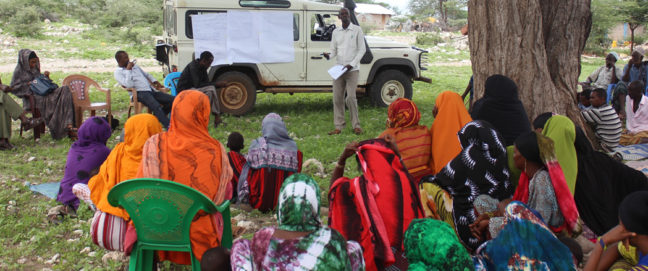This has been an extraordinary and terrifying week as countries around the world face up to the impact of the COVID-19 pandemic. Here, we have repurposed a conversation between a global group of members from the Alliance editorial advisory board highlighting what philanthropy needs to do on the frontlines of the crisis, and with their permission have published it below.
China
 TAO Ze writes:
TAO Ze writes:
The past two months have been a unique time for all Chinese people. The whole country, over 1.4 billion people, has stayed at home and experienced angry and touching moments. Now everyone knows the importance of transparency.
The first group of volunteer doctors and nurses have just finished their work in Hubei Province where the virus was at its most serious and which has now become much better and safer. Over 38,000 of them went to Hubei from all over China to treat local patients. These doctors and nurses are mums, dads, sons or daughters. When we stay at home for safety, they put themselves at risk to save lives. As a father and a son, I am totally touched by their courage and selflessness. As the volunteers are leaving, local citizens are telling them: ‘whenever you come back to Hubei again, all the five star hotels and restaurant will be free for you! Thank you very much for saving our lives by putting your lives in danger.’
Yishan is the China Philanthropy Data Center. We are building a data platform to track the donation flows for coronavirus. So far, we have registered over 34,000 grantmakers and 4,500 public charities who are fighting the virus in China. Over USD4 billion has been donated in the past 2 months. Now, we are working on the data analysis of the donors’ strategy and how the charities spend the money. If you are interested in our work, please do not hesitate to tell us.
India
Ingrid Srinath writes:
In India, it feels like we are holding our collective breath. Yes, all 1.3 billion of us, or at least all those connected to some form of media. The number of cases of COVID-19 that have been detected thus far just crossed 200 with low levels of fatalities so far. Of course, the collective fear is that these numbers are simply a consequence of very limited testing. Until today (20 March), only those who have travelled to other affected countries or those with contact with such individuals were being encouraged to get tested. It feels like it is only a matter of time before we enter a phase of exponential growth, given our densely populated urban areas, limited healthcare infrastructure and the poverty and precariousness that prevents most of our fellow citizens from indulging in the luxury of social distancing. Those who can work from home are slowly adjusting to that mode of work. This is harder for small non-profits and those that work directly in communities. The situation is not helped by the fact that the fiscal year ends on 31 March adding deadline pressure to already strained resources.
The philanthropic response has been muted. Thus far, only international funders – Ford, Omidyar, MacArthur, Packard – have communicated their willingness to accommodate more flexible funding, timelines and reporting. We expect more local donors to respond in the coming days. The economic downturn is, of course, likely to have a severe impact on corporate philanthropy which has been a source of some support to non-profits in the past five years since contributions were made mandatory. To exacerbate the situation, an amendment proposed by the government to the Companies Act may disqualify large numbers of non-profits from receiving such funds and there are other changes in this year’s national budget that will affect tax exemptions. Not a pretty picture at all.
India Development Review published a quick round-up of social sector responses to the crises:
https://idronline.org/the-social-sector-response-to-covid-19
In solidarity,
South Africa
Halima Mahomed writes:
Here in South Africa we are just over two weeks into the pandemic, but are now starting to see an increase in local infections. The government has been proactive in instituting certain travel and leisure restrictions and schools are closed already, but I fear we are in for a very rough ride, and will need to see many more restrictions in place soon. We are anticipating a massive spread once it hits spaces like densely populated informal settlements where isolation is not a feasible option and safety nets are few. We are extremely worried about what will happen once the pandemic intersects with a population that has high rates of HIV and TB infections.
We’re doing what can be done to flatten this curve, but the reality is that it is those who have privileged positions of remote working and resources to cope – a minority of the population – who can take the measures needed as fully as they need to be taken. My thoughts are with you all.
Slovakia
 Boris Strecansky writes:
Boris Strecansky writes:
Slovakia is one of the countries that has a lower number of cases at the moment, while it has also adopted relatively stringent measures early on. It remains to be seen how and to what extent it will have an effect on flattening the curve. With a small number of nurses and doctors, and much lower expenditures per capita than the EU/OECD average, the health system is already under stress. There is a lack of protective equipment, face masks etc, but it is feared that the lack of qualified personnel during the peak might be the biggest threat.
At the same time there has been a strong response from civil society and the corporate sector, with over thirty various initiatives in following categories:
– Production and distribution of face masks
– Crowdfunding and fundraising initiatives from the public and corporations for protective equipment to support health and social care facilities
– Volunteer coordination and organisation in support of lonely and vulnerable people (helping with food supplies, etc)
– Information and awareness raising in marginalised communities (in Roma settlements, among homeless, for example)
– Organising spaces for the identification of solutions, hackathons, app development initiatives for prevention,
– Informing the general public, prevention of hoaxes and disinformation
– IT companies are organising to offer support, while corporate foundations have announced programmes supporting urgent needs in the diagnosis and prevention of COVID-19, donations of respirators and ventilation devices to hospitals, etc
– Development of alternative online learning services for children and pupils, including those with special needs
– Organising support for artists and those working in the cultural field which is heavily affected by the closure of venues
It is clear that coordinated and robust support from the state institutions will be the main backbone of the response, but civil society will play a crucial complementary role in organisation and delivery at the level of municipalities and communities. The experience of philanthropic institutions – in the Slovak context this means a couple of intermediary independent foundations, a handful of private venture philanthropies, several dozen corporate foundations and eight community foundations – with experience of serving and connecting various needs, mobilising and ensuring the flow of resources and providing the outlook for the post-peak crisis period will be very important.
Best wishes to you all. Let’s stay in touch and stay safe,
Colombia
Carolina Suárez writes:
I want to express my solidarity with all of you, in particular with Tao and Carola who have had to live the crisis more intensely.
This crisis is dramatic, but also, like all events in life, it represents an opportunity to strengthen the importance of human values, such as solidarity, integrity, humility and transparency. All of us working in philanthropy have the privilege of seeing the world through a different lens, and now, more than ever, we need this vision of ‘the love of humanity’ and the capacity to innovate in the way we tackle this systematic crisis, taking risks, with courage and in collaboration.
I hope in Latin America, all the preventive measures we have taken in advance can help to avoid the same level of crisis that other countries in Asia and Europe have experienced. Our precarious health systems cannot withstand a flood of cases.
Hoping that you and your loves ones stay safe and healthy,
Germany
Volker Then writes:
Here at the Centre for Social Investment, no-one has yet been affected by the virus and we are happy to report that we are all well. Public life has, however, come to an almost complete halt. No schools, universities, public institutions or arts and culture places are open.
However, it’s rewarding to see that many people are developing small, informal signs of solidarity and offers of support to those in need and showing that humanity is not what some politicians call ‘putting yourself first’. Dietmar Hopp is co-founder of SAP, a substantial philanthropist, and the majority owner of Curevac, a medical start-up company doing very promising research into a corona vaccine. Hopp has categorically refused an approach by the US government to buy the company at a price, according to reports, of $1 billion to secure the potential vaccine for exclusive US use [1]. Hopp has clearly said that any success in vaccine development by his company will be for all of humanity and not for anyone’s exclusive use! The European Commission has recently reported that is has provided Curevac with additional funding of up to € 80 million to speed up the research and potential production.
I wish all of you the best in the spirit of solidarity.

Michael Alberg-Seberich writes:
The role of philanthropy in the current situation is becoming clearer. We know that many foundations are in close contact with their grantees and projects. People are exploring needs and are trying their best to cut through bureaucratic red tape so that money can stay with projects. So far, leadership in this situation has come from individuals, rather than from institutions. In this google doc people in the foundation sector have started a repository of initiatives from around the world:
This week, we will see the first video calls to explore further joint philanthropic efforts in this unprecedented situation.
An example for a call to action is the initiative ‘Keep the Arts Alive’ by German foundations supporting the arts: http://www.stiftungen.org/news/keep-the-arts-alive-notfallfonds-fuer-kuenstlerinnen-und-kuenstler-beteiligen-sie-sich.html.
The current challenge is to ensure the safety of families, staff and grantees. The next step will be how to support the most vulnerable in these trying times: the elderly, the sick, refugees and the homeless.
Every crisis also creates opportunities. In this case, the digitalisation of philanthropy sector will leapfrog ahead because of the limits the disease imposes on physical contact. We are now seeing web conferences and workshops everywhere. It is amazing how quickly people adapt, and share tools and experiences.
The federation of German Foundations is also active in the crisis. To see what is happening there: https://www.stiftungen.org/aktuelles/corona-stiftungsarbeit-im-krisenmodus-rechtliche-und-praktische-tipps.html
In these hard times, I hope that philanthropy will show at its best.
The Netherlands
 Pieter Stemerding writes:
Pieter Stemerding writes:
Here in the Netherlands we are, like all of you, still grappling with the speed and depth at which this crisis is hitting us. Fortunately, the government is now setting clear goals, avoiding some of the confusion we initially had about what to do and what not to do. Since the weekend before last bars, restaurants, sports facilities and clubs and all schools are closed in an attempt to slow the spread of the virus.
It is too early to tell how we will emerge from this situation. Our strong social services and the government resources made available to (small) businesses today will to some extent dampen the impact. Judging from your feedback and some early signals received from, among others in South Africa, I am afraid this will have a much greater impact on some of you. Please do keep us informed so that we can all do what we can as a philanthropic community to provide support.
Please do take care.
Belgium
 Catherine Lennon writes:
Catherine Lennon writes:
A week into the coronavirus crisis lockdown in Brussels, it’s no longer original to say that what we are living through today is unprecedented, unplanned for and has brought to a standstill everything we in Europe hold sacred, and to a large extent, take for granted. Gone is our freedom of movement, being able to go to work or enjoying free time doing what makes us happy.
However, at the European Foundation Centre, I have seen a tremendous demonstration of solidarity and strength, resilience and responsiveness from colleagues and members alike and our wider community, not least other members of Alliance’s Editorial Board. The past weeks have demonstrated that irrespective of differences in geography, organisation, language or culture we are a community, and together we can overcome any issue put in front of us, and while we may be self-isolated, we are far from being alone.
At the EFC, in addition to the measures that we have all been forced to take such as teleworking, holding virtual events, and much more effectively using our plethora of online tools, we also launched a survey to gain an understanding of our sector’s response to the crisis – the results of which will be communicated shortly, and will be the basis for a pledge from the sector. We have been amazed at the speed with which our members have put together a wide range of coalitions, strategies and mechanisms from research and vaccine funding to support the most at-risk populations. Take a look at the inspirational ideas that our members are doing and sharing with the world: https://www.efc.be/news-post/how-are-efc-members-mitigating-the-impact-of-covid-19/.
I wish all of you the best of luck in this strange and unsettling time! I hope that this cloud will have a silver lining and that once we go back to ‘new’ normal we will stand taller, be stronger and work even more closely together as a community.
US
Lucy Bernholz writes:
At the Digital Civil Society Lab at Stanford University, we’re in touch with several other groups – mostly civil society and digital rights organisations – about possibilities of using our built infrastructure of webinars, blogs, chats, and video conferencing to weave networks among groups and individuals that are typically siloed by time, space, institution and budget.
US philanthropy media is reporting that a small number of the big foundations are relaxing reporting rules, shifting to general operating support and to those funding pandemic research. It does seem like this could be a silver lining – a shove that helps more foundations recognise the value of core support, but I feel like it’s such a small group of funders out of such a huge number.
More interesting than what foundations are doing – in my opinion – is the rebirth of mutual aid and collective care, aided by payment apps, spreadsheets, while social media people are setting up emergency funds all over the place. Examples are here: https://mailchi.mp/alliedmedia/amp-collective-care-vol-1?e=8b10eb0af3
UK
 Barry Knight writes:
Barry Knight writes:
In the UK, the Conservative Government has swallowed its neoliberal pride and is nationalising the economy. While many have welcomed this, there is almost no recognition of the role of civil society, which has sprung into action, Covid-19 Mutual Aid UK has recorded the formation of 900 local groups designed to help vulnerable people in the economy.
We have begun to study civil society and philanthropy both in the UK and internationally focussing on practical solutions that will enable people to get through this process and ‘build back better’.
At present, there is much fear and panic, with people focussing on survival. For the moment, people have lost their vision of what a good society might look like and merely want to get back to where they were. However, there is a cadre of organisations that are working on the long-term and we are doing our best to support those efforts.
Featured image: Fran Boloni (http://www.theparisphotographer.com)
Footnotes
- ^ CureVac has since denied the that the US government tried to buy the business:https://bloom.bg/3bodqiy






Comments (0)